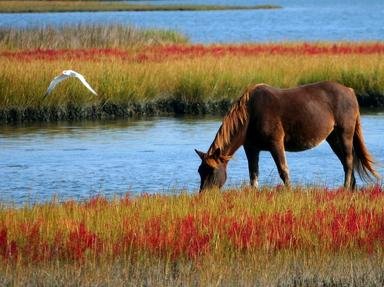Quiz Answer Key and Fun Facts
1. This French horse is one of several breeds used by Louis XIV in his armies, and Napoleon for his campaign of Russia. Which breed is it?
2. Sampson, born in England in 1846, is often cited as being the heaviest horse ever. What breed was he?
3. The Canadian Sport Horse and the Canadian Horse are the same breed.
4. This horse is a gaited, pony-sized breed from Northwestern Spain.
5. The Gypsy Vanner comes in only one size.
6. What country did the Hungarian Horse originate in?
7. Which horse is the national horse of Brazil?
8. The Marwari can be chestnut.
9. This horse breed does not have a registry or a member association. It does have frontal bosses, or "horns." Which breed is it?
10. The Pryor Mountain is a type of which breed?
Source: Author
morrigan
This quiz was reviewed by FunTrivia editor
crisw before going online.
Any errors found in FunTrivia content are routinely corrected through our feedback system.

